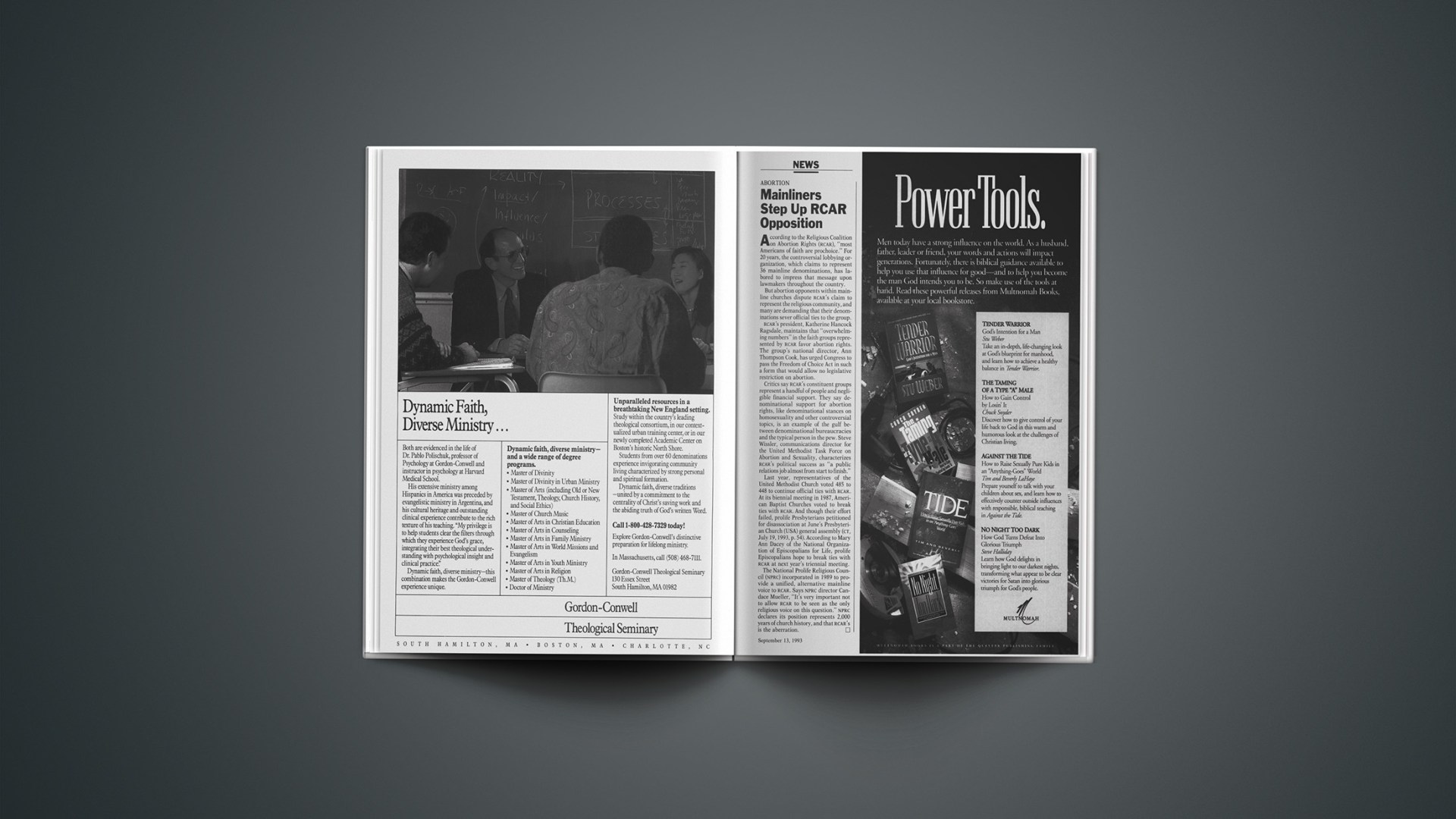According to the Religious Coalition on Abortion Rights (RCAR), “most Americans of faith are prochoice.” For 20 years, the controversial lobbying organization, which claims to represent 36 mainline denominations, has labored to impress that message upon lawmakers throughout the country.
But abortion opponents within mainline churches dispute RCAR’s claim to represent the religious community, and many are demanding that their denominations sever official ties to the group.
RCAR’s president, Katherine Hancock Ragsdale, maintains that “overwhelming numbers” in the faith groups represented by RCAR favor abortion rights. The group’s national director, Ann Thompson Cook, has urged Congress to pass the Freedom of Choice Act in such a form that would allow no legislative restriction on abortion.
Critics say RCAR’s constituent groups represent a handful of people and negligible financial support. They say denominational support for abortion rights, like denominational stances on homosexuality and other controversial topics, is an example of the gulf between denominational bureaucracies and the typical person in the pew. Steve Wissler, communications director for the United Methodist Task Force on Abortion and Sexuality, characterizes RCAR’s political success as “a public relations job almost from start to finish.”
Last year, representatives of the United Methodist Church voted 485 to 448 to continue official ties with RCAR. At its biennial meeting in 1987, American Baptist Churches voted to break ties with RCAR. And though their effort failed, prolife Presbyterians petitioned for disassociation at June’s Presbyterian Church (USA) general assembly (CT, July 19, 1993, p. 54). According to Mary Ann Dacey of the National Organization of Episcopalians for Life, prolife Episcopalians hope to break ties with RCAR at next year’s triennial meeting.
The National Prolife Religious Council (NPRC) incorporated in 1989 to provide a unified, alternative mainline voice to RCAR. Says NPRC director Candace Mueller, “It’s very important not to allow RCAR to be seen as the only religious voice on this question.” NPRC declares its position represents 2,000 years of church history, and that RCAR’s is the aberration.










